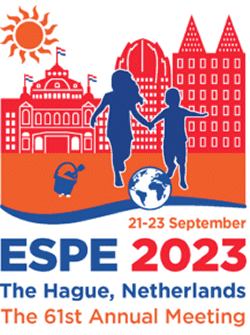
61st Annual ESPE (ESPE 2023)
The Hague,
Netherlands
21 Sept 2023 - 23 Sept 2023
The 61st ESPE Annual Meeting will now be taking place in The Hague, The Netherlands



